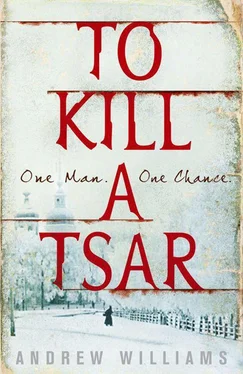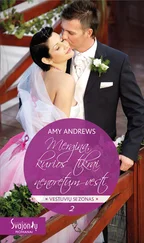It was close to midnight when the droshky dropped him in front of a smart terracotta-coloured mansion near the Voznesensky Bridge. To his surprise, the door was opened by a young footman in a blue and gold uniform.
‘Doctor Hadfield — I’ve been asked to call.’ He gave the flunky his card. A moment later, he was being shown up the stairs to the first floor and into an elegant drawing room. Anna was standing before a large pier glass between the windows with Sophia Perovskaya.
‘Why has it taken you so long?’
He was irritated by her proprietary manner. ‘I came as soon as I received your note.’
‘Thank goodness you’ve come,’ said Sophia with more grace, holding out her hands to greet him.
‘The midwife is with her but there are complications,’ said Anna, her face tense with anxiety.
‘Who is this woman?’
‘Does it matter? She needs your help.’
The young woman had been struggling for more than fourteen hours and was in great distress. The midwife had done what she could but the baby was breech.
‘This woman should be in hospital! Why have you waited so long?’
‘She can’t go to hospital, she’d be arrested,’ said Sophia. ‘They would question her — if she’s feeling weak she will give too much away…’
Sophia’s face was milky white and she flinched as the woman screamed in pain.
‘You’re prepared to take the risk of losing mother or baby, or both?’ Hadfield asked incredulously.
‘Can’t you do anything for her here?’
‘I may have to perform a Caesarean. Pray to God I don’t,’ he said, rolling up his shirt sleeves.
Two hours later the baby was born, his exhausted mother weeping tears of relief and pain and gratitude. He had to cut her, but he was able to deliver the boy without an operation. Nineteen-year-old Tatiana was strong. ‘Congratulations,’ he said, sweeping damp hair from her face. She was lying in a nest of pillows, her baby pressed naked against her breast. The midwife was hovering on the opposite side of the bed with a swaddling sheet. There was a knock at the door and it opened a few inches.
‘Can we come in?’ Anna’s voice trembled a little with emotion.
‘For a moment. She needs to rest.’
Anna and Sophia tiptoed across the room as if frightened of what they would find.
‘Dark eyes like his father,’ said Tatiana when they were at her bedside. She bent to kiss his little head. ‘Would you like to hold him, Sophia?’
‘I would like to,’ said Anna, and she lifted him with the confidence of one used to holding babies. She held him close, her cheek brushing his head, and when she looked up again Hadfield saw that her eyes were wet with tears.
‘I will come back tomorrow,’ he said, as they left the room.
‘It would be best if you came late in the evening,’ Sophia replied. ‘This house belongs to a friend of the party but we don’t want to draw attention to our presence.’
‘Is Tatiana safe here?’
‘For now, yes.’
‘And the father?’
‘He’s in the “Preliminary” awaiting trial. He was caught distributing copies of the party’s paper at the university. He may not see his baby before the revolution.’ Sophia seemed detached, as if speaking of the everyday, a tram ride into the city, shopping at the market.
‘A terrible price to pay.’
‘But his son will live in a better world.’
That night Hadfield persuaded Anna to return to his apartment and they made love without the inhibitions of others close by. There was an additional strange intensity to their lovemaking, as if the birth of the baby had left its emotional stamp on both of them.
‘I saw you wipe away a tear,’ he whispered, his cheek against hers, their naked bodies together.
She did not reply.
‘It will be so hard for her,’ he said.
‘She should have been more careful.’
‘Careful?’ he asked, edging from her a little to look at her face.
‘Revolutionaries shouldn’t have children.’
‘Ah yes, revolutionaries can’t be happy. I forgot.’
‘Don’t be sarcastic. It’s cruel, a sin to have children when we could lose our freedom or our lives at any time.’
‘All this talk of martyrdom and sin,’ he said, leaning forward to kiss her lips. ‘I thought you were no longer a believer.’
‘Don’t tease me. Go to sleep. I don’t want to talk about it.’ She turned abruptly from him.
But he could not sleep. Curled about her, her skin warm to his, his mind restless, he felt sad. If it was foolish for a revolutionary to have a family, was it foolish to risk love and tenderness too? What were her feelings for him? He pressed closer, trying to empty his mind of all but the happiness he felt lying at her side.
A few days later his surgery assistant brought him another note from ‘a friend of Anna’s’.
‘The messenger says it’s urgent and that he’ll wait for a reply,’ his assistant said apologetically.
The note was in a scruffy hand and badly spelt: an emergency, a ‘comrade’ badly hurt, ‘come at once’. A friend of Anna’s? He cursed quietly under his breath: what on earth was she thinking? He would not become the party’s physician of choice. The messenger was standing, cap in hand, at the waiting-room door. It was evident from his manner and dress that he was a worker at one of the factories or shipyards on the island.
‘Your Honour, it’s only a short walk. We must hurry.’
Instructing his assistant to rearrange appointments, Hadfield grabbed his coat and medical bag and followed the man from the surgery. At the end of Line 7, they turned on to one of the island’s arteries, bustling with horse trams and cabs and traders at their stalls, stamping their feet, blowing into frozen hands. Hadfield did his best to make conversation but his guide was tongue-tied, incapable of more than a ‘yes’ or ‘no’ to simple questions. They slithered along the icy pavement for five minutes, turning left at Line 11 and walking on until they reached the door of a run-down three-storey house at the far end of the street. His guide gave two sharp knocks, paused for a few seconds then gave two more. The door was opened with an impatient jerk by a dishevelled man in his twenties who was plainly suffering from shock, for his face was drained of colour, his pupils abnormally dilated.
‘Thank goodness — come… come in… come in,’ he stammered. ‘It’s poor Valentin — this way, please.’
Hadfield followed him along a short corridor and into a ground-floor apartment.
‘We wouldn’t have brought you here but Anna…’
‘Is she here?’
‘No, no.’
‘Where’s the patient?’ Hadfield snapped.
‘In here, please.’ He held the door open.
The injured man was sitting on a damp mattress with his back to the wall, a bundle of bloody rags round his right hand. There was a deathly pallor to his face and he had clearly lost a lot of blood because his shirt was stained red, and there were dark patches on his woollen waistcoat and trousers.
‘Valentin, I’ve brought a doctor.’
The injured man nodded weakly but did not open his eyes. The room was furnished with nothing more than the mattress and a simple wooden chair.
‘You, what’s your name?’ Hadfield turned to the first man.
‘Kibalchich, Nikolai Ivanovich, at your service.’
‘Well, Nikolai Ivanovich, I need water, towels, soap, and quickly.’
While he was away, Hadfield began gently peeling the rags from the injured man’s hand. It was a severe trauma injury, ragged tissue, ragged bone, three fingers gone, forefinger and thumb reduced to bloody stumps.
‘How did you do this?’
‘A piece of machinery, Doctor,’ said Kibalchich from the door. He was holding an enamel bowl, a towel draped over his shoulder.
Читать дальше












